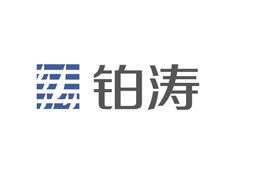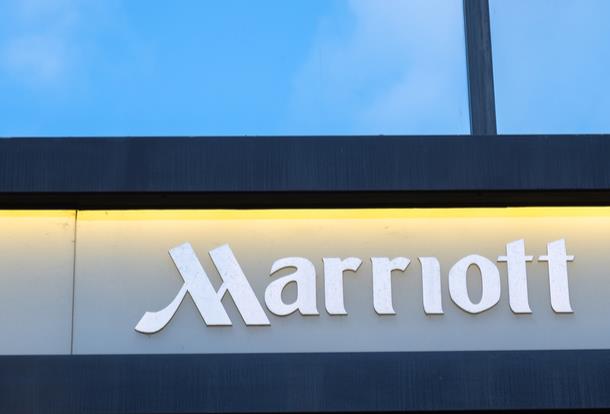With hotel business as its basis in recent years, Plateno has been combining cross-sector resources to build itself into a more diversified hotel firm, winning the title of the company that owns the largest number of hotel brands in China, regardless of what people have said about it, good or bad.
Like many other hotel groups in China, Plateno has also looked to overseas markets. Plateno’s strategies for international expansion is, on one hand, oriented to those popular outbound destinations favored by Chinese tourists, and on the other hand, based on analysis of demography, age structure and other factors, coupled with prediction of destinations where the hotel market may grow rapidly in the future.

It has been 3 years since Plateno began its strategic expansion to international hotel markets in 2014. What are the company’s overseas strategies on differentiation and development heading? TravelDaily China has talked to Mr. Weibiao Lin, General Manager of International Business Department of Plateno Hotel.
Asset-light and “brand + management” model
“Plateno’s overseas strategic layout focuses on budget hotels and also covers some middle-end to high-end hotels,” said Lin. In his opinion, capital output, technology output, brand output, management output and labor output, these five output models are used separately or mixed by Chinese companies in their globalization process.
Plateno focuses more on brand output and management model output. Lin believes that through accumulation and development in the local markets, Plateno has developed a competitive hotel management model for the international markets.
“Plateno’s international strategy sits on two principles, i.e., light asset and localization.” Lin said that the light asset principle means that hotel management model output should be the core of Plateno’s overseas hotel strategies, and franchise management should be the main focus. The challenge here is how to get the trust from overseas investors.
Normally a hotel brand will first open a direct-sale store or a flagship store at an overseas destination to gain trust from local investors through demonstration of its brand influence and hotel operation results. But, Plateno skips this step and adopts the franchise model directly.
Lin took the Southeast Asian market as an example. In Southeast Asia, even budget hotels copy the management model from premium star-rated hotels, which consists of a very complex structure from first-line workers to hotel manager and a level-by-level reporting model, leading to very low efficiency of hotel management and lots of unnecessary operating costs.
The flat management model of 7 Days Inn has proven its own advantages. “Plateno’s research data shows that a team of 30 to 40 persons is needed to manage every 100 rooms in a typical hotel in the Southeast Asian country while a team of only 15 to 20 persons is needed to manage 100 rooms under the 7 Days Inn model. By adopting the centralized management model without so many levels in the hierarchy, the hotel investor can save nearly 30% of its operating cost. This is one of the reasons why Plateno brand wins the favor of its investors,” Lin said.
“7 Days Inn and Plateno already have strong brand influence in overseas Chinese markets after building up their local market business over so many years”, said Lin. With a solid brand foundation, Plateno prefers to partner with Chinese investors in its strategic layout in the Asian markets, as Chinese investors are more likely to accept Plateno’s business philosophy. Under its light asset and localization layout strategy, Plateno will expand more quickly if it can partnered with local companies with proven strength in the overseas market.
Lin also made it straight that Plateno is at the exploring and pilot stage in its overseas business layout process and expects to find a balance between the expansion speed and brand effect. “In Southeast Asian countries, speed is a priority; in the European markets, brand effects matter most; and, in East Africa, exploring the market for the future is the main task. Different strategies are adopted in three different markets,” said Lin.
So far Plateno has set up overseas offices in Jakarta, Berlin and Nairobi and has 14 hotels under its own brand in these cities. In addition, 25 hotels are in plan for construction. A hotel investor in Indonesia has signed a contract with Plateno for investments in ten 7 Days Inns.
Localization, respect to local market and make changes
Currently Chinese hotel groups seem to be in the trend of “rushing to go overseas”. But they still need to face those better established international hotel groups in the global market. Differentiation is the key to win in competition.
In Lin’s opinion, Plateno should not simply use its own development model for the overseas markets, but should try to build up its differentiated strength for business development in view of the different development stages and characteristics in the overseas markets and with specific services to meet the potential needs of its partners as much as possible. This is the core of “localization” in Plateno’s international strategies.
“The point is, when to respect and comply, and when to bring in revolution”, stated Lin. While showing respect to local market, Plateno also need to bring in innovations and revolutions to gain a foothold in the market.
For example, Plateno tries to introduce the concept of “vertical cutting” in the overseas markets to improve the core service items of a hotel and cut those unnecessary ones. This concept can help investors to save construction cost and change the traditional mindset of “covering all aspects” in hotel services in the Southeast Asian markets.
Lin considered that the hotel investment market in Southeast Asia is not very mature and many investors have a restricted traditional mindset, so they usually build budget hotels according to their personal preferences or the standard for a premium star-rated hotel and hence increase lots of unnecessary costs.
Lin gave an example, in a case that one investor used to spent over RMB 200,000 as the construction cost of one single guest room in a budget hotel under its own project, and after forming partnership with Plateno, the investor saved nearly 50% of the construction cost.
“A complicated industry chain is needed to back up a hotel brand”, Lin said. In China, the manufacturing industry is well developed so a hotel can be constructed in a short period of time. Plateno can usually complete the process of design, construction and opening of a hotel in three to four months. However, In Southeast Asian countries, the industry chain is not mature, so it takes a very long time to build a new hotel.
For example, in China, it takes only 2 days to find a local supplier and complete purchase and receipt of a double-layer glass lamp that meets Plateno’s standard and specifications. While in a Southeast Asian market, it often happens that no supplier can be found or even a supplier can be found, the purchase cycle takes months, the delivery period is longer and the price is also higher.
Addressing these issues, Plateno plans introduce a Chinese supply chain of hotel supplies and fast-match of products to the overseas markets, providing hotel supplies purchase service to its partners.
The shorter a hotel construction period is, the sooner the investor will receive return on investment. Normally Chinese construction teams is more efficient and many investors request Plateno to hire Chinese construction teams.
“Plateno usually provides only standardized supports in the Chinese market, such as brand, operation and management supports,” said Lin. Considering the needs in different overseas destination markets, Plateno has developed many other supporting services including supply chain support and construction planning support, to enable the franchisees to build and open hotels more effectively, hence attracting more and more partners.
It is also worth noticing that hotel markets in different countries are at different development stages. Plateno chooses to launch different hotel brands in different countries.
For example, in 2009 when the civil war was ended in Sri Lanka, mainly premium star-rated hotels were used to serve foreign guests. Plateno seize the opportunity to enter the vacant market of mid-range hotels and budget hotels. In 2016, a Zmax hotel was open in Colombo, the capital city of Sri Lanka. Zmax is a middle-end brand under Plateno. In the future, Plateno will continue to establish more budget hotel brands in the market.
A two-pronged strategy of membership and team building
Plateno is clearly aware that “human” is the core subject that makes changes. Lin said that it is almost impossible to change the mindset of those experienced practitioners in the overseas markets. In this case, besides the professionals and talents with experiences, Plateno also hires “freshmen” who have zero or very little experience in the hotel industry. Plateno will set up a training center in local markets to build the team, so that the team can put Plateno’s management and operation theories into practices.
Lin said that Plateno will search for and foster qualified talents internally in order to provide more talents to support its international plan. In the process of localization, the hotel management team will mainly consist of local hires, with support from Chinese expatriates, for the team will not only be familiar with local market, but also be better in building Plateno’s service system and training standards.
In membership system, Jin Jiang and Plateno have jointly announced that the combined database containing basic information of the 26 million Jin Jiang members and the 80 million Plateno members was set up on January 16, 2017. After the database integration, they have more than 100 million combined members.
“With the synergies from Jin Jiang and Louvre Hotels, Plateno has a more diversified membership system covering wider territories”, said Lin. The mid-term to long-term plan of Plateno is to further attract localized members in the overseas destination markets.
Lin also said that though Plateno can obtain up to 70% of members through its own channels in the domestic market, it still needs to partner with OTA, offline travel agencies and other channels to ensure the occupancy rate of the overseas franchised hotels at the early stage.
Afterword:
During the interview, Lin also shared some of the challenges that a Chinese hotel group might come across in its overseas development.
The first challenge is how to find the right partner in a short period of time. Lin shows us many uncontrlable factors and potentials risks in a new country and market, such as fake information provided by the partner. So, Plateno only partners with well-known companies and organizations in local market.
The second challenge is how to recruit global talents. Chinese companies seem to be weaker in this part compared to their European and American peers. Plateno strengthens its global talent team building through English language training and foreign professional recruitment.
In addition, according to Lin, an international talent not only needs to possess an international vision, but also needs to possess a local sense to get a deep understanding of the local market, culture and rules and dig out those unmet needs. Therefore, Plateno can carry out its long-term strategic layout instead of a short-term strategy of large-scale money-burning promotion.
In fact, during the interview, we can see that Plateno has accumulated its own strength in Chinese market and has now a good capital to do some pilot projects in the international market with the support from Jin Jiang. Through its pilot and exploration projects, Plateno obtains deeper knowledge of local market and forms its own theories and strategies. It provides some experiences for the reference of other players in Chinese hotel industry who want to “sail overseas”.
Plateno has very clear understanding of the budget hotel market as it has strength on that, and is now looking for a differentiation strategy for the development of its local and international hotels in the global market. More importantly, in the strategic plan of Plateno for the overseas market, it is more important to avoid overlapped strategic layout and internal competition while complementing its strength to Jin Jiang for joint development.
At present, Jin Jiang will provide its overall guidance with regard to the layout strategy and direction during the international expansion process, but so far no specific decision has been made as to whether each party should differentiate and grow by territory or by hotel type.
Hence we can see that Jin Jiang still needs some time to figure out how to coordinate the development of different hotel groups within its family. Perhaps Plateno can gradually find its own advantages in the path of international development and clarifies its own differentiated positioning in the Jin Jiang family in the future.




